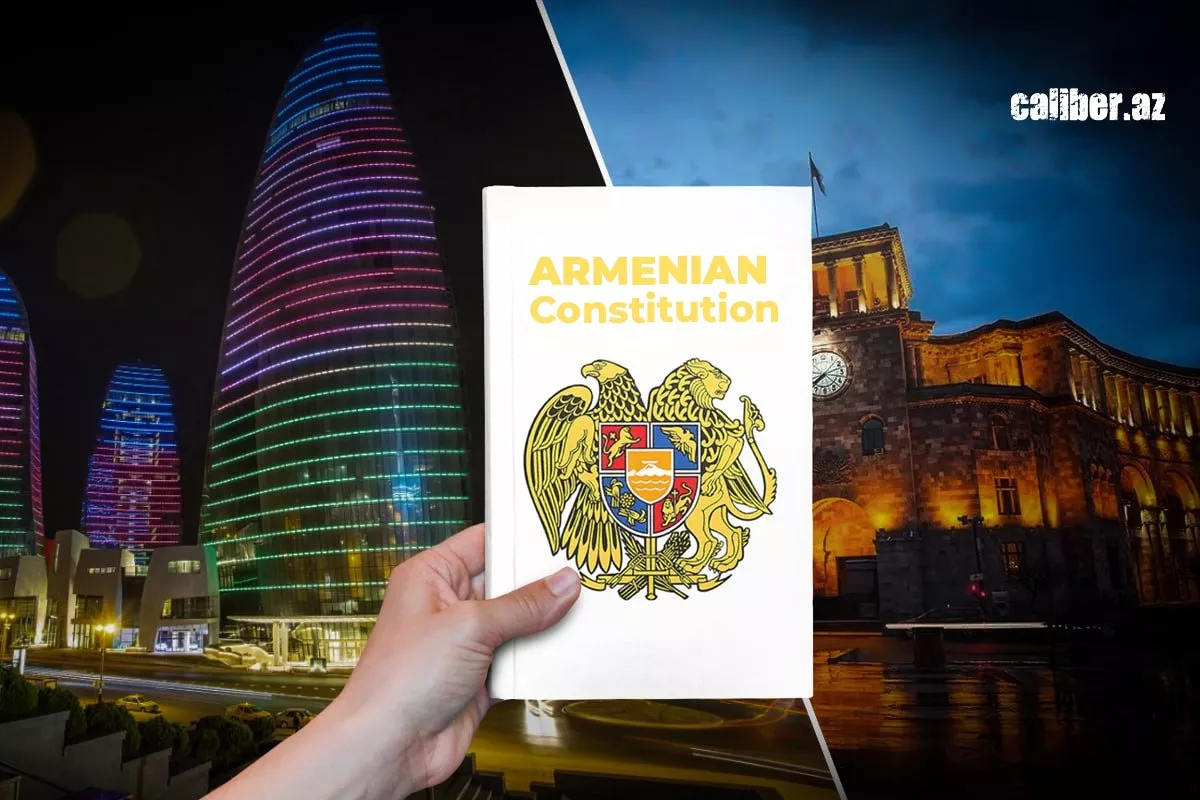Pashinyan vs. Armenian opposition The battle of “patriots”
Armenian Prime Minister Nikol Pashinyan wrote on social media that "since 1994, that is, after the ceasefire, the negotiation process has been focused on the return of Nagorno-Karabakh to Azerbaijan." "No other content was involved in the negotiation process. Discourses about different content were introduced in the Republic of Armenia exclusively to address domestic political issues. In this context, I made a big mistake. In 2018, when I became familiar with the contents of the negotiations, I did not admit to myself what I had stated above (my patriotism, of the well-known model, did not allow me to do so, and therefore, I did not explain this to the people)," Pashinyan noted.
The move is foolproof – I'm only guilty of being too good. This is similar to how one is often advised to answer job interview questions. When asked, "What is your weakness?", the correct response is to frame it as a strength. For example, "I’m too responsible, which sometimes makes me overly tired." This same tactic is often used by some of our well-known public figures, who are entirely devoid of self-irony. When asked about their weaknesses, they respond with something like, "I’m too kind, people take advantage of that, and it causes me suffering." In short, it’s all in the spirit of the famous saying by Mashadi Ibad (a character from Azerbaijani literature and film): "My only flaw is the lack of flaws." By the way, he was the only one who, precisely because of his blunt honesty, demonstrated true self-irony.
But to stay on topic, if we set aside Pashinyan's attempt to highlight his own role, it's true that the negotiations, almost from the very beginning, generally aligned with the concept of Azerbaijan's territorial integrity. This principle was reaffirmed at the OSCE Lisbon Summit in December 1996. The issue, however, is that these negotiations were continuously sabotaged by the Armenian side. And this is where Pashinyan finds himself stepping on the same rakes as his predecessors. Isn't he, in fact, sabotaging the peace process himself? If Pashinyan is truly different from Kocharyan and Sargsyan, he must now meet Baku's legitimate demands – namely, authorize the dissolution of the Minsk Group and, most importantly, amend Armenia's Constitution to remove territorial claims against Azerbaijan.

However, it’s important to consider the context in which Pashinyan posted his statement and the purpose behind it. The opposition, led by Bagrat Galstanyan, having recovered from its setbacks, is eager to re-engage. Its leader has declared that removing "this evil government" must be an imperative.
In response, Pashinyan is once again attempting to explain to the electorate that, from a diplomatic and legal standpoint, the idea of "miatsum" (reunification) was doomed from the very beginning. The issue was not if, but when Azerbaijan would feel strong enough to turn its legal advantage into a military one and reclaim Karabakh by force. Pashinyan’s words carry an implicit cry: "I am not to blame for what happened during my tenure."
To defend his boss, Deputy Chief of Staff of the Prime Minister, Taron Chakhoyan, stepped in, noting, among other things, that "if Nagorno-Karabakh was truly independent, then why didn’t Armenia officially recognize its independence?" By posing this question, Chakhoyan leads to the key point: "In reality, after the first war, the Armenian authorities needed Nagorno-Karabakh to maintain power, cover up plundering, and silence the people about their corruption."
Indeed, the illusion of "miatsum" allowed the Karabakh clan to enrich itself for two decades, both in Armenia and in the occupied territories of Karabakh. Now, investigations are underway against the leaders of this clan, including former Presidents Kocharian and Sargsyan. New cases may be initiated. Therefore, the desire to overthrow Pashinyan is not only linked to Armenia's geopolitical choices but also to the simple fear of the former Armenian leaders for their lives, health, and property. They are desperate to eliminate the source of discomfort in the form of Pashinyan.
Moreover, it is telling that the protests initiated by the Karabakh clan began to take a more defined form only after Azerbaijan fully restored its sovereignty over the Karabakh region—more precisely, after Russian peacekeepers began to leave in late spring of this year. In other words, the Karabakh clan began to act only after they realized they could no longer hold sway over Karabakh, with all their wrongdoings now placed at Pashinyan’s doorstep. They aim to return to "real Armenia" and continue their plundering with renewed vigour, as the threat of Azerbaijan's retribution no longer looms large.
In the spring and summer of this year, they failed to achieve their goals. There are no indications that the situation will unfold differently now. It is clear that they simply cannot wait and are acting out of desperation.








